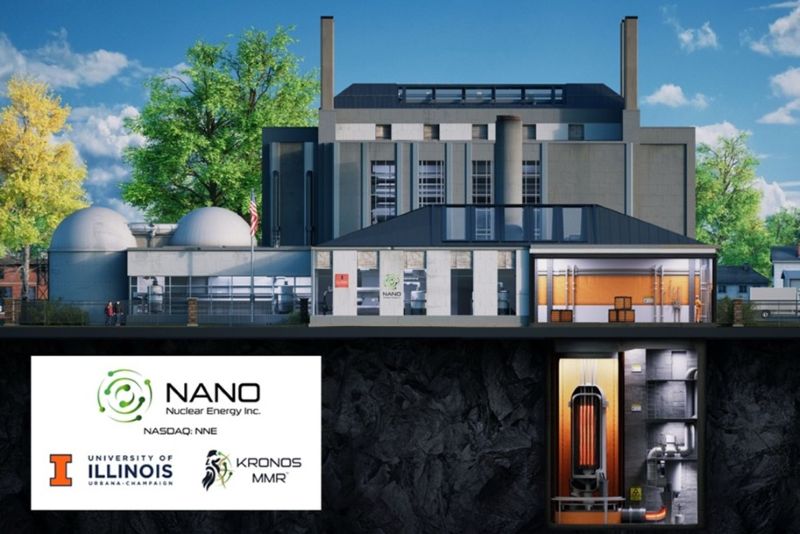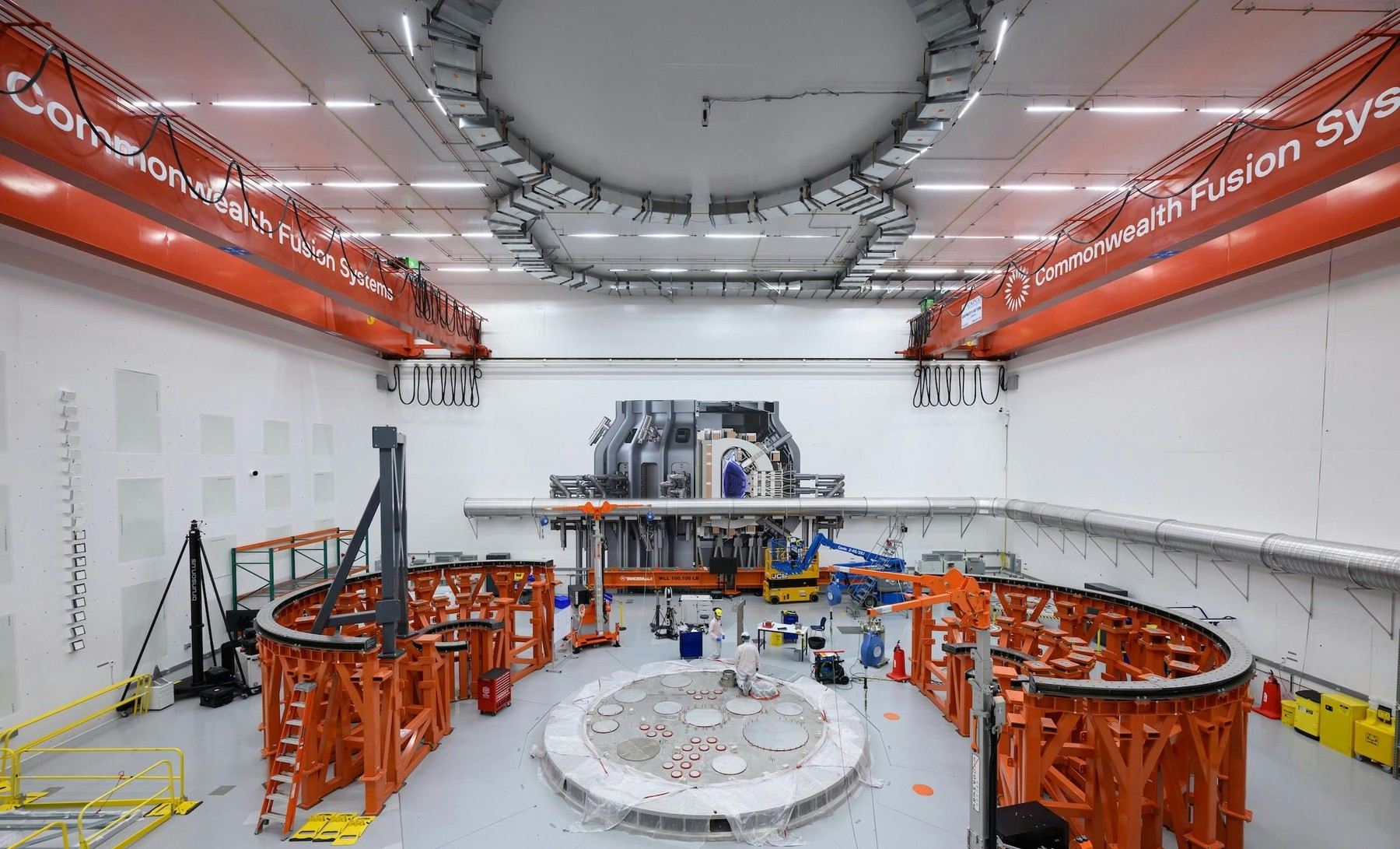Insider Brief
- The U.S. Nuclear Regulatory Commission has approved the Fuel Qualification Methodology for NANO Nuclear’s KRONOS microreactor, enabling the company to proceed with its construction permit application.
- The approval confirms the safety and regulatory readiness of NANO Nuclear’s advanced FCM® fuel, which incorporates TRISO particles in a silicon carbide matrix.
- The KRONOS MMR will be the first advanced microreactor on a U.S. university campus and is expected to support clean energy, research, and workforce development at the University of Illinois Urbana-Champaign.
PRESS RELEASE — NANO Nuclear Energy Inc. (NASDAQ: NNE), a leading advanced nuclear energy and technology company focused on developing clean energy solutions, is pleased to announce that the U.S. Nuclear Regulatory Commission (NRC) has issued its final Safety Evaluation (SE) approving the Fuel Qualification Methodology Topical Report (FQM TR) for the advanced fuel design to be used in the NANO Nuclear’s stationary KRONOS MMR™ Energy System.
This important regulatory milestone marks the successful culmination of a rigorous review process and represents a major step toward deployment of the KRONOS reactor prototype at the University of Illinois Urbana-Champaign (U. of I.). The approved Fuel Qualification Methodology defines the regulatory framework and testing approach for the qualification of Fully Ceramic Microencapsulated (FCM®) fuel, which incorporates tri-structural isotropic (TRISO) fuel particles embedded in a silicon carbide matrix. With this latest regulatory breakthrough, NANO Nuclear is now positioned to submit its Construction Permit Application for the KRONOS reactor, with fuel qualification rapidly progressing. NANO Nuclear is advancing its vision to become a leader in small, clean energy technologies that address global energy security and decarbonization goals.
“This is a major victory for advanced nuclear energy and a transformative moment for NANO Nuclear, bringing us closer to turning the promise of KRONOS into a working reality at U. of I.,” said James Walker, Chief Executive Officer of NANO Nuclear. “With the NRC’s final approval of the FQM Topical Report, we now have the regulatory green light to move forward with the Construction Permit (CP) application for the prototype KRONOS. We thank the NRC for their thorough review. This milestone is a critical enabler for our entire reactor program and affirms the strength of our fuel strategy. The nuclear energy future is coming—and NANO Nuclear is at the center of it.”

“Fuel is one of the biggest sources of uncertainty in any advanced nuclear project,” Illinois Grainger Engineering Associate Professor Caleb Brooks, Head of the Microreactor Demonstration Program at U. of I. “This favorable regulatory outcome represents a significant reduction in that uncertainty for our project, and the SE establishes a common language between us and the regulator on how the fuel will be shown, with high assurance, to be safe and effective.”
The FQM TR had previously undergone joint review by the NRC and the Canadian Nuclear Safety Commission (CNSC), with initial participation from the UK’s Office for Nuclear Regulation (ONR) as an observer. NANO Nuclear believes that final approval of the FQM TR by the NRC demonstrates confidence in the methodology’s scientific soundness and regulatory compliance, offering a repeatable pathway for advanced fuel qualification applicable to NANO Nuclear reactors.
“With this regulatory foundation in place, we are prepared to execute,” said Dr. Florent Heidet, Chief Technology Officer and Head of Reactor Development of NANO Nuclear. “Our next steps include finalizing fuel fabrication timelines, preparing and submitting the construction permit this year, and completing early-stage site work at U. of I., including geotechnical drilling and environmental assessments. We will keep accelerating until the reactor is operating.”
The KRONOS MMR Energy System would be the first advanced microreactor built and operated on a U.S. university campus and will serve as a national platform for research, training, and demonstration. It would also become a centerpiece of U. of I.’s energy innovation initiatives, providing the university with clean, resilient energy while training the next generation of nuclear professionals.
“NANO Nuclear is doing what others are still planning—we are executing,” said Jay Yu, Founder and Chairman of NANO Nuclear Energy. “The NRC’s approval of the FQM TR is more than a regulatory milestone; it’s a launchpad for reliable, deployable, and efficient nuclear power in the U.S. and beyond.”
About The Grainger College of Engineering at U. of I.
The Grainger College of Engineering at the University of Illinois Urbana-Champaign is one of the world’s top-ranked engineering institutions, and a globally recognized leader in engineering education, research and public engagement. With a diverse, tight-knit community of faculty, students and alumni, Grainger Engineering sets the standard for excellence in engineering, driving innovation in the economy and bringing revolutionary ideas to the world. Through robust research and discovery, our faculty, staff, students and alumni are changing our world and making advances once only dreamed about, including the MRI, LED, ILIAC, Mosaic, YouTube, flexible electronics, electric machinery, miniature batteries, imaging the black hole and flight on Mars. The world’s brightest minds from The Grainger College of Engineering tackle today’s toughest challenges. And they are building a better, cooler, safer tomorrow.
Visit https://grainger.illinois.edu for more information.








